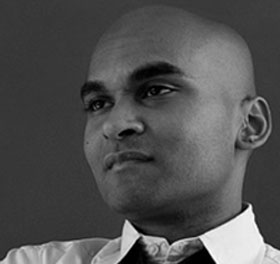It’s easy to become entrenched in our own ways of thinking. Each of us lives in “a separate moral universe with its own facts, its own experts,” says social psychologist Jonathan Haidt. “We all feel as though we’re living in reality and they’re in la-la land. But we’re all in la-la land.” Haidt believes if we make an effort to understand each others’ la-la lands, we may still disagree, but we’ll likely disagree with more civility.
To that hopeful end, we asked two respected bloggers — liberal Kevin Drum and conservative Reihan Salam — to share favorite and trusted blogs from the other side of the liberal/conservative divide. See their picks and send us your own recommendations.
 Kevin Drum is a political blogger and columnist for the progressive magazine Mother Jones. |
 Reihan Salam blogs about domestic policy for the conservative National Review. Reihan Salam blogs about domestic policy for the conservative National Review. |
|
| The National Review‘s group blog The Corner often seems like a direct pipeline into the conservative id, with its writers fighting as much with each other as they do with liberals. If you think that conservatives all march in lockstep, taking their talking points each morning from Right Wing Central, try reading The Corner regularly. You won’t believe it for long.
In spite of a debating society style that sometimes grates, Megan McArdle in her blog for Bloomberg, makes a lot of sharp points and draws her data from a wide variety of sources. She might make you mad, but sometimes she’ll also make you think. If you inhale liberal economists like Paul Krugman and Brad DeLong, you should be reading Tyler Cowen and Alex Tabarrok’s Marginal Revolution too. They provide the blogosphere’s smartest and most lucid counterpoints to mainstream liberal economics, not just the stale supply-side snake oil found in so many other places. I’ve had my issues from time to time with the National Review’s Reihan Salam, the co-author (with New York Times columnist Ross Douthat) of Grand New Party, but he reads deeply, engages seriously with liberal arguments and covers a staggering amount of ground. “The Apostates” is my pet name for three bloggers (Bruce Bartlett, David Frum and Andrew Sullivan), all of whom still consider themselves conservatives but who have, in various ways, broken with the increasingly reactionary GOP of the tea party era. Their criticisms of Republicans may draw you in, but while you’re there you’ll also be treated to some of the best, most clear-eyed defenses of conservative thought around. |
On discovering that Jamais Cascio had written for a little-known role-playing game called Transhuman Space, which featured an elaborate scenario about a 22nd century defined by radical advances in nanotechnology, genetic engineering and artificial intelligence, I knew I had to read his work. His blog, Open the Future, covers a wide range of issues, including the ethical questions surrounding geoengineering, from a left-of-center, humanist perspective.Apart from being tremendously prolific, Matt Yglesias, author of Slate’s Moneybox blog, is consistently intelligent and irreverent. Yglesias is a heterodox liberal, who crusades for freer markets in housing and transportation. Yet he is also a brutally effective critic of conservatives like myself, which makes him a valuable read.
Tim Lee, who edits The Switch for the Washington Post, is a libertarian-minded liberal who focuses on technology policy and civil liberties. Lee dives deep into his subject matter, offering a level of detail and clarity that few other bloggers can match. The Canadian science fiction novelist, free culture activist and BoingBoing blogger Cory Doctorow is a tremendously creative thinker. He’s had a huge influence on how I think about technology and freedom, though we disagree on much else. Mike Konczal of the Roosevelt Institute has a gift for synthesizing ideas drawn from sociology, anthropology and economics. We are ideological opposites, but we’re both fans of interdisciplinary thinking. |

